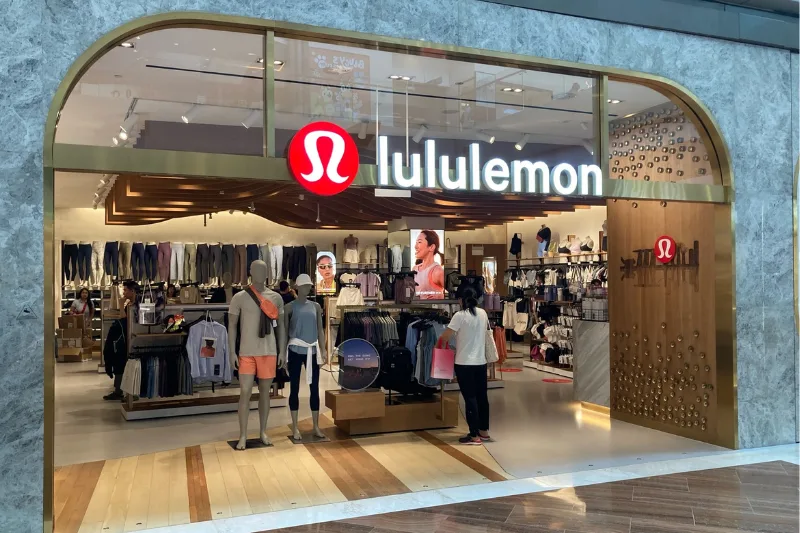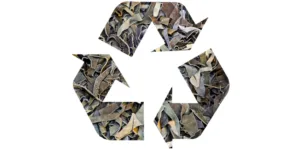In today’s global marketplace, the manufacturing location of a product plays a crucial role in shaping both the brand’s reputation and consumer trust. For a well-known lifestyle brand like Lululemon, where their tote bags are made significantly impacts product quality, durability, and the company’s commitment to sustainability. As demand for personalized eco-friendly tote bags grows, consumers are increasingly aware of the importance of responsible manufacturing practices. Understanding where Lululemon manufactures their tote bags offers insight not only into the craftsmanship behind each product but also the brand’s dedication to environmental responsibility and supply chain transparency, values that resonate deeply with today’s conscious buyers.

Lululemon, known for its commitment to quality and performance, partners with manufacturers across several Asian countries to produce its popular tote bags. Each location—Vietnam, China, Indonesia, and Cambodia—offers unique strengths and challenges in terms of cost, craftsmanship, labor, and sustainability. In this article, we’ll take a closer look at the key manufacturing regions behind Lululemon’s tote bags and how each contributes to the brand’s global supply chain.
China Bag Factories

China has long been the global leader in manufacturing, with decades of experience in producing high-quality goods, including custom canvas tote bags and custom logo tote bags. With a mature industrial ecosystem, Chinese factories offer end-to-end capabilities—from material sourcing to final product assembly—ensuring efficiency and consistency. Their advanced technology, skilled workforce, and comprehensive quality control systems have made China a trusted partner for global brands like Lululemon. In addition, the robust logistics infrastructure supports large-scale production and fast global delivery. However, rising labor costs and strict environmental regulations have prompted some companies to diversify their manufacturing bases.
Advantages
Highly skilled labor and mature manufacturing technologies
Well-established supply chains and material access
Efficient logistics and fast delivery systems
Experience with large volume and high-quality production
Disadvantages
Increasing labor and compliance costs
Stricter environmental laws requiring higher investment
Political and trade tensions may affect stability
Vietnam Bag Factories
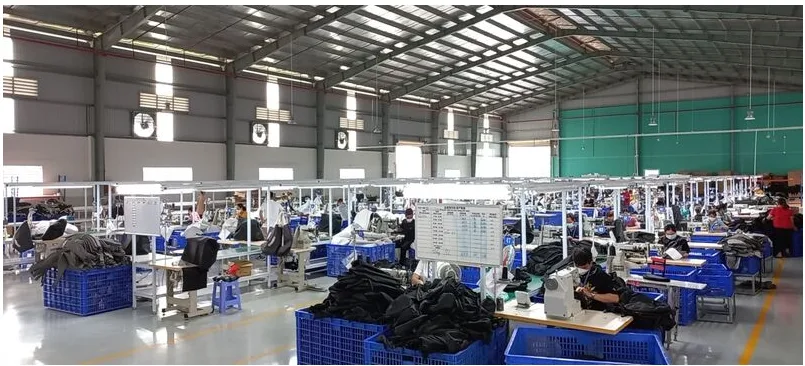
Vietnam has rapidly emerged as a top alternative manufacturing hub, particularly in the production of eco-friendly tote bags and custom promotional tote bags. Its competitive labor costs, improving infrastructure, and expanding factory base have attracted many global brands. The government actively supports foreign investment in manufacturing, creating a favorable environment for sustainable production. While the overall manufacturing quality is on the rise, Vietnam is still developing in areas such as automation and advanced techniques. Nevertheless, for brands seeking a balance between cost and quality, Vietnam offers a strong value proposition.
Advantages
Lower labor costs with growing technical capabilities
Strong government support for export manufacturing
Skilled and youthful labor force
Ideal for sustainable and large-volume production
Disadvantages
Limited high-tech manufacturing compared to China
Logistics infrastructure is still developing
Language and communication challenges in some regions
Indonesia Bag Factories

Indonesia is becoming an increasingly attractive destination for producing bulk custom tote bags and custom tote bags with pockets, thanks to its abundant labor supply and cost advantages. The government has rolled out incentives to boost the manufacturing sector, particularly in textile and accessories production. While the workforce is young and plentiful, many factories are still catching up in terms of technology and quality control systems. Logistics and transportation limitations can also impact delivery timelines. For high-volume, price-sensitive products, Indonesia remains a strategic choice.
Advantages
Low production costs and a large labor pool
Government support and foreign investment incentives
Suitable for high-volume, basic product categories
Disadvantages
Technology and quality control are not yet at premium levels
Infrastructure limitations can delay exports
Inconsistent management and production standards in some areas
Cambodia Bag Factories
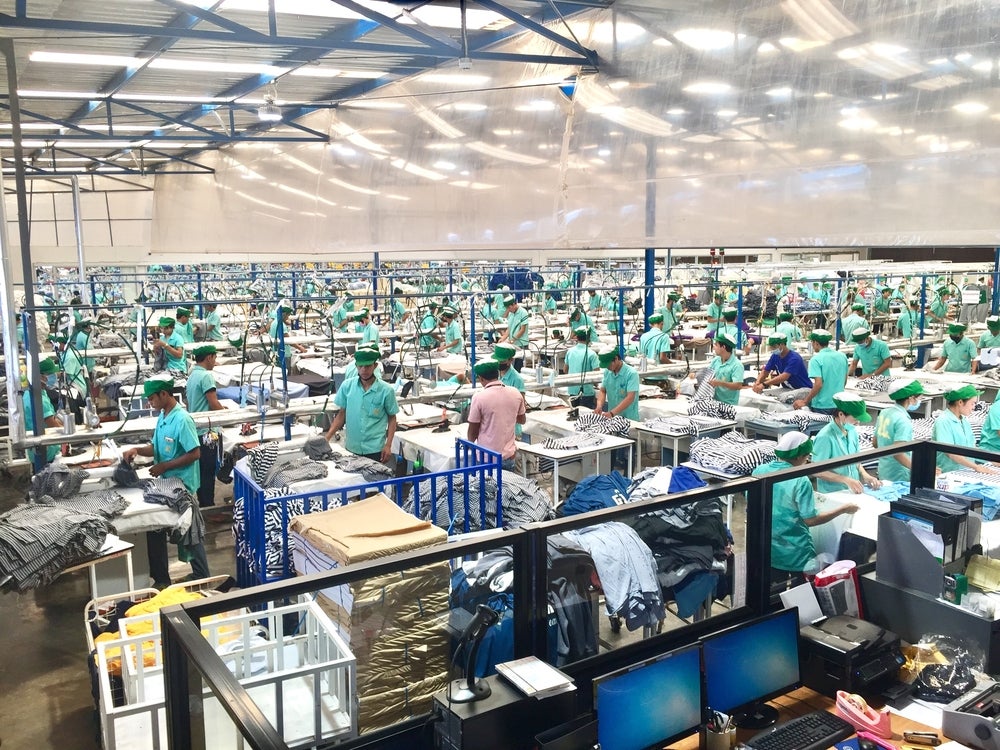
Cambodia has gained attention as an emerging manufacturing base for custom cotton tote bags and custom tote bags for events, offering some of the lowest labor costs in Asia. The young workforce and growing number of factories are appealing to brands seeking affordable production. However, the country’s manufacturing industry is still in the early stages of development, with limited access to advanced machinery and trained technicians. While quality may not match that of more established regions, Cambodia is suitable for basic designs and large-scale runs where cost is a primary concern.
Advantages
Extremely competitive labor costs
Young and available labor force
Improving the investment climate with tax incentives
Disadvantages
Outdated equipment and limited technical know-how
Lower consistency in product quality
Weak logistics and infrastructure systems
Custom Tote Bag Manufacturing Standards and Quality Control
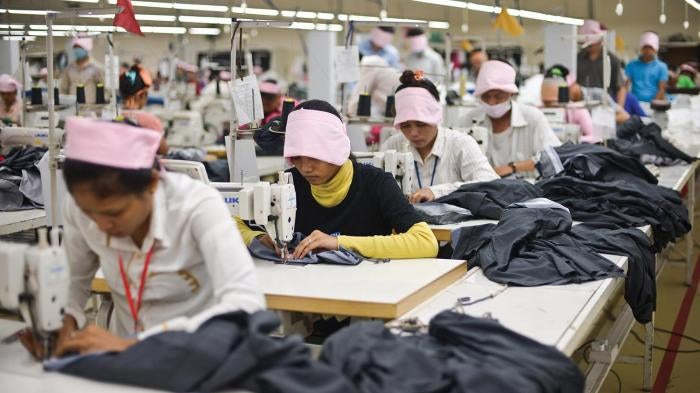
Beyond choosing the right factory location, Lululemon places strong emphasis on ensuring that every tote bag meets the brand’s high standards for craftsmanship, sustainability, and ethical labor. This commitment is reflected throughout its production process—from the selection of materials to the treatment of workers.
Craftsmanship and Quality
Lululemon emphasizes precision and durability in every tote bag. High-grade canvas, recycled polyester, and other eco-conscious materials are used, with reinforced seams, consistent stitching, and functional elements like zippers and pockets. Multi-stage inspections ensure that every bag meets the brand’s high standards, especially for custom canvas and eco-friendly designs.
Sustainability
Sustainability is central to Lululemon’s production. The company participates in the Sustainable Apparel Coalition and uses the Higg Index to evaluate environmental performance. According to the 2023 Impact Report, 75% of products are made in factories with verified environmental management systems. Third-party certifications such as bluesign® and OEKO-TEX® ensure safe chemical use, proper water management, and effective waste treatment.
Ethical Labor
Lululemon requires all manufacturing partners to follow its Vendor Code of Ethics, based on International Labour Organization standards. This guarantees fair wages, safe working conditions, and zero tolerance for forced or child labor. Workers receive regular safety training, and some factories provide wellness programs, grievance mechanisms, and skills development initiatives. In 2022, over 90% of Tier 1 partners participated in labor and workplace safety audits.
Conclusion
By combining strict material standards, sustainability certifications, and labor oversight, Lululemon ensures its tote bags are not only stylish and functional but also responsibly made from start to finish.
Custom Tote Bag Manufacturing Destination Updates

In recent years, Lululemon has strategically adjusted its global supply chain in response to shifting trade policies, rising production costs, and growing demand for more sustainable and diverse tote bag options. These changes directly impact the sourcing of custom canvas tote bags, custom logo tote bags, and other in-demand products like eco-friendly tote bags and reusable custom tote bags.
Historically reliant on manufacturing in China, Lululemon gradually shifted over 86% of its production to Southeast Asia—primarily Vietnam, Cambodia, Indonesia, and Bangladesh. This move helped the company lower costs while improving flexibility. However, with the recent implementation of new U.S. tariffs—up to 49%—on Vietnam and Cambodia, Lululemon is once again reevaluating its footprint to maintain pricing and availability for key products such as bulk custom tote bags.
To reduce risk and ensure the continued production of high-quality, ethically made tote bags, Lululemon is:
1. Exploring nearshoring options in North and Latin America to complement its Asian base.
2. Increasing factory partnerships in Indonesia and Sri Lanka, where custom tote bags with zippers and other specialized designs can be produced efficiently.
3. Using air freight more strategically for time-sensitive items, especially during peak retail seasons like holidays or limited edition product drops.
These moves not only ensure smoother production and delivery but also strengthen Lululemon’s ability to meet consumer demand for personalized, sustainable, and functionally diverse tote bag options.
Summary
Lululemon’s global tote bag manufacturing strategy reflects the brand’s unwavering commitment to quality, sustainability, and supply chain agility. From China’s efficient production capabilities to the cost advantages found in Vietnam, Indonesia, and Cambodia, each location adds unique value to Lululemon’s diverse manufacturing portfolio. In the face of evolving trade policies and rising consumer demand for eco-friendly tote bags, Lululemon continues to strengthen its market leadership through supply chain optimization, nearshoring initiatives, and strict adherence to ethical and environmental standards.
Choosing a Lululemon tote bag means more than owning a functional and stylish accessory—it’s a vote of support for a brand that prioritizes responsible sourcing, transparent operations, and a planet-first mindset. Looking ahead, as manufacturing technologies evolve and global trade landscapes shift, Lululemon remains committed to adapting its strategy to meet consumer expectations for performance, aesthetics, and sustainable bag production.
[Take Action Now] Want to learn how Sunteam, a trusted custom tote bag manufacturer, creates high-quality custom tote bags through expert craftsmanship and environmentally responsible practices? Explore our latest collections or contact us to discover our personalized production process. Every partnership with Sunteam is a step toward a more transparent supply chain and a greener future.

